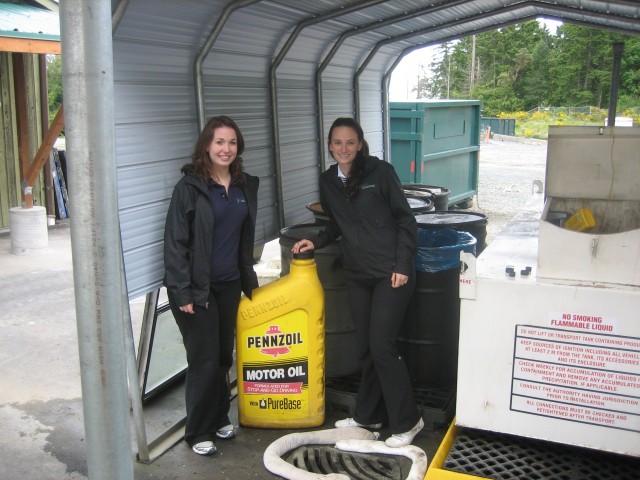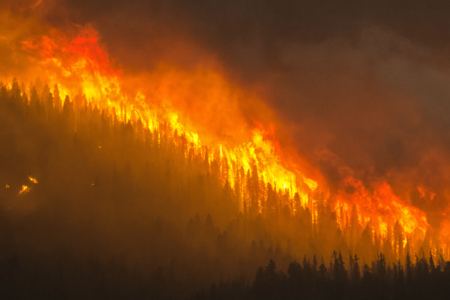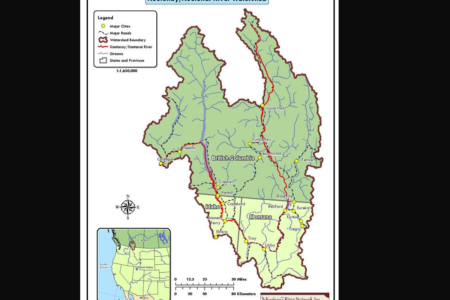Recycling oil in Rossland: Every drop counts
The destructive nature of oil on clean water environments is certainly no surprise to anyone who has watched the news recently. As oil continues to gush into the Gulf of Mexico, there is a group traveling around BC this summer informing folks that even the smallest spills of oil can have devastating effects on our environment. Fortunate or unfortunate timing? Depends on your perspective.
As part of the non-profit BC Used Oil Management Association, Katya Kirsh and Michelle Haas are visiting over 500 locations around the province this summer, spreading the message that–quite literally–every drop of oil counts. Along the way, they’ll be informing BC residents about how to properly dispose of and recycle their own oil.
The organization says that, “one drop of oil has the ability to contaminate one million drops of water,” and want us to know that everything from used motor oil, oil filters or even oil containers themselves can cause damage to our local environment. There is a way to avoid contamination, however, and that is what Kirsh and Haas are hoping to instill in folks around the province on their tour.
“The program encourages the public to drop off their oil, oil filters, and oil containers to a collection facility so that they can be properly recycled,” explained Kirsh. “We contact different facilities or gas stations and those sort of places and partner with them to accept oil from the public. Through our program we then partner with oil generators to come and pick it up.”
The oil recycling duo will be in Rossland this Thursday at Esso, which is the only collection facility in town.
“We have a questionnaire that we ask the facilities that we visit to fill out. It asks things such as how the program is going for them, what kind of response they are getting from the public and things like that,” added Kirsh. “One of the major messages that we’re trying to get out to the public is that the facilities we have listed on the website are happy to take back your oil and to do it during business hours. For some reason some people think that it’s not OK to drop off your oil, so they do it secretly at night or just dump it. If you drop it off at night people might get into it, it might get spilled or it might not get noticed, so it’s very important that you drop off your used oil during business hours.”
There is no cost to drop off oil at the Esso station. The program, managed by the BC Used Oil Management Association, is funded through an environmental handling charge levied on the purchase of every new container of oil and oil filters sold in the province. Currently the group collects five cents per litre of oil, 50 cents per oil filter (eight inches and under) and one dollar per oil filter larger than eight inches. That levy funds the collection of used oil, which is then recycled for re-use in industrial applications such as lubrication and fuel for asphalt and pulp plants. Oil filters are taken to steel manufacturing plants and added to the manufacturing process of re-enforced steel. Oil containers can be melted down and re-used in part as new oil containers, drainage tile and street curbs.
While it’s not a perfect solution, the items involved do recycle at a fairly high rate of efficiency. Currently motor oil is recycled at 77% efficiency, oil containers at 81% and oil filters at 90%. If improperly disposed of, of course, the efficiency drops to zero and has the additional negative impact of contaminating the local environment and ground water.
No, your used oil filter won’t cause pelicans to flounder in the Gulf of Mexico, but perhaps that is part of mentality that’s keeping personal oil recycling rates lower than they should be. Haas and Kirsh are traveling around this summer, driving home the message that you can make a difference: one drop at a time.
For more information on proper oil disposal and recycling, check out the BC Used Oil Association’s website at www.usedoilrecycling.com/bc
























